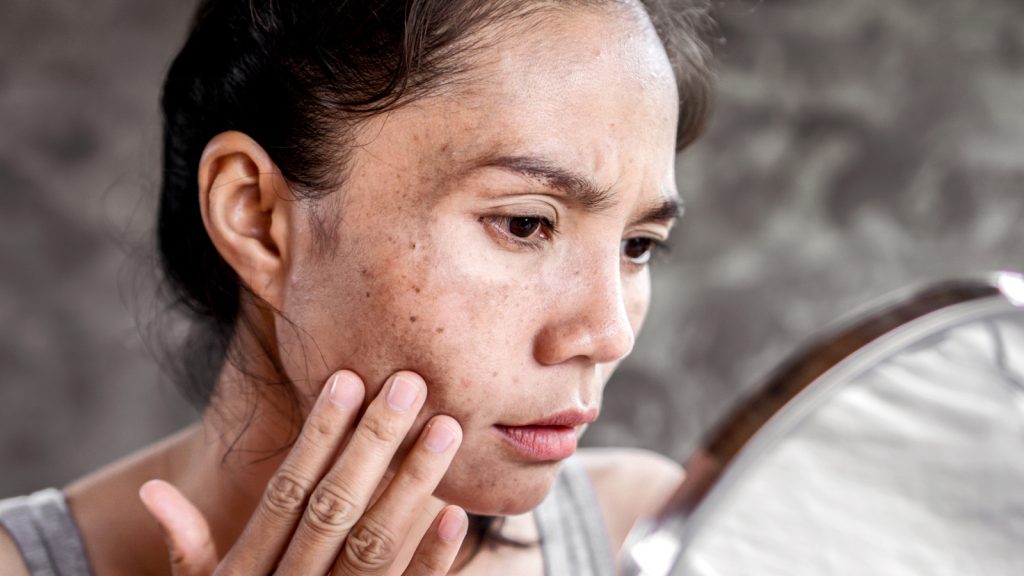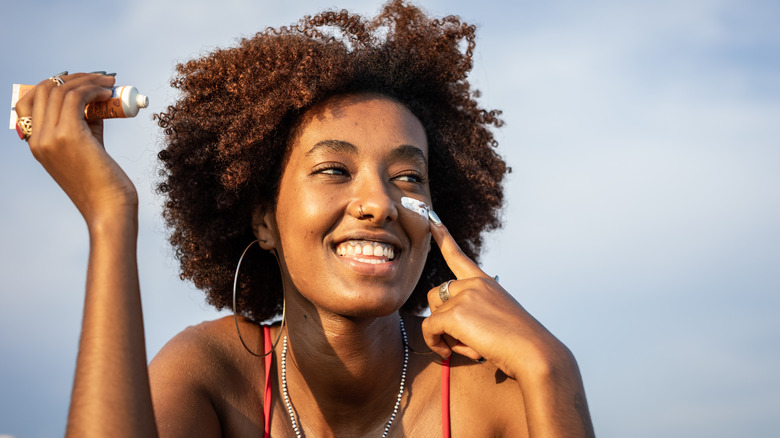Book Appointment Now
How to get rid of dark spots
Depending on the reason for your dark spots, treatment may not be necessary. For example, melasma is a common skin condition that affects 15 to 20% of women, and because its appearance is steeped in hormonal fluctuations, it often goes away on its own. Age spots, however, fade but never completely go away. That’s why knowing the source of your dark spots can help manage your expectations.
“If left untreated, hyperpigmentation often does improve, but it improves slowly, and noticeable change can take months or longer to occur,” says Dr. Brendan Camp, adding that products that exfoliate can help encourage cell renewal. “Alpha-hydroxy acids like lactic acid and glycolic acid gently exfoliate skin by breaking bonds between dead skin cells and removing them from the skin surface,” says Dr. Camp. Retinol and retinoids can also aid in improving the appearance of dark spots because they, too, encourage cell turnover.
But if you have a special event coming up and don’t have time for creams and serums to do their thing, there are more intensive options. “In-office treatments that address dark spots include microneedling, laser treatments, chemical peels, and even prescription topical medications,” says Dr. Camp. While all of these are effective, microneedling, also called collagen induction therapy, is a game changer because of all its other benefits. It doesn’t just do wonders for dark spots but also improves scarring, sagging, fine lines, and stretch marks.
How to prevent dark spots in the first place
If preventing dark spots is important to you, apply SPF every day on every body part that’s exposed to the sun. “Use a daily SPF moisturizer with a minimum SPF of 30 on a daily basis, including in fall and winter, to protect skin from the effects of UV radiation, which includes the formation of sunspots,” says Dr. Brendan Camp. This even means applying SPF to your hands in the dead of winter, too.
If you’re someone who likes to pick at things on your skin, then that’s a habit you want to stop immediately. “Avoid picking or popping pimples, which can trigger the formation of a blemish and even lead to scar formation,” says Dr. Camp. Although some dark spots are tied to genetics, this doesn’t mean you can’t take proactive steps to prevent them or at least lower your chances of getting them in the future. Stay ahead of them with a skincare routine that’s geared toward hyperpigmentation prevention. “Include the use of gentle exfoliants in your regular skincare routine to facilitate skin renewal and brighten skin,” says Dr. Camp.
As you get older, dark spots will become more common and inevitable — they’re sort of a badge of honor. But if it gets to a point where your dark spots are giving you grief, then don’t hesitate to contact your dermatologist. As Dr. Camp points out, you have options for managing hyperpigmentation, so take advantage of them.









